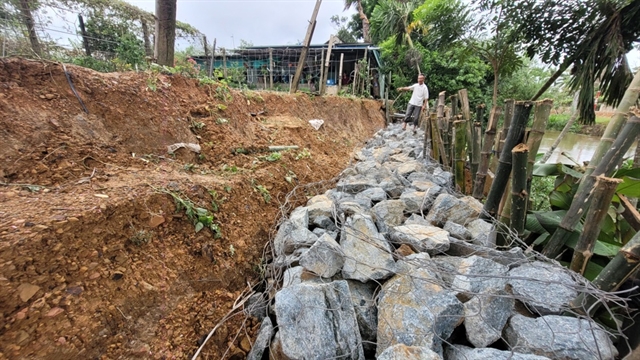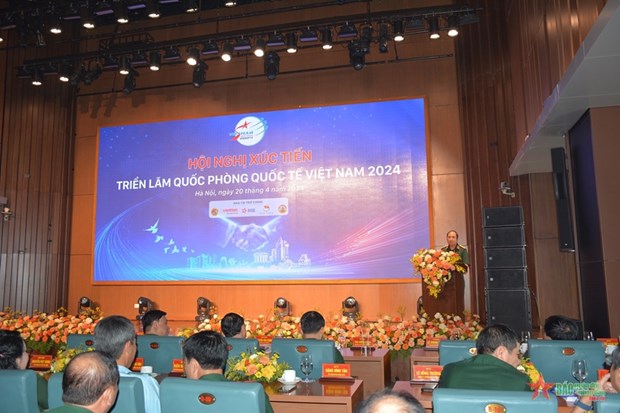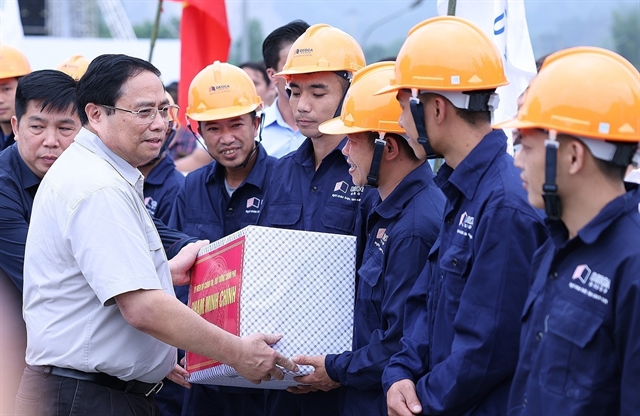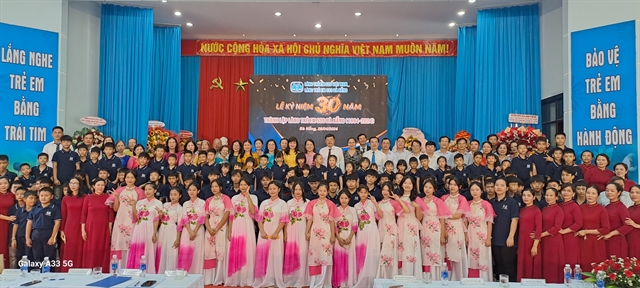 Society
Society
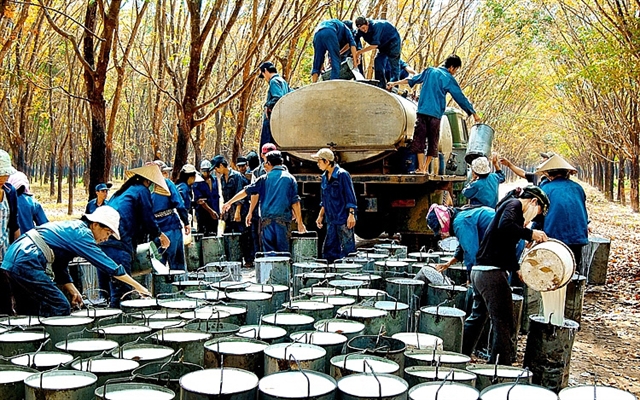
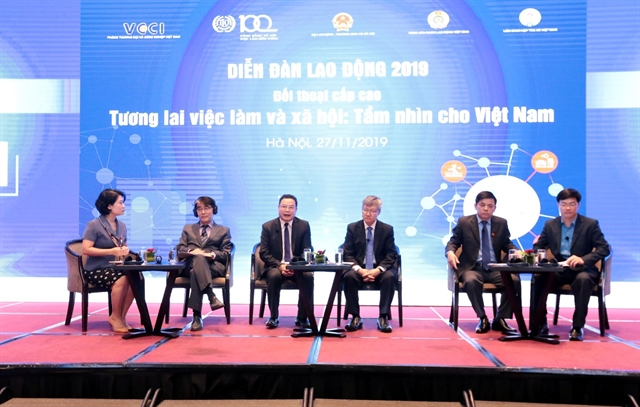
|
| Delegates discuss the future of work at the Labour Forum in Hà Nội on Wednesday. — VNA/VNS Photo Anh Tuấn |
HÀ NỘI — “Future of Work: The Choice of Việt Nam” was the theme of the Labour Forum 2019 held in Hà Nội on Wednesday.
Deputy Minister of Labour, Invalids and Social Affairs Lê Văn Thanh said the forum was taking place as Việt Nam and 186 other members of the International Labour Organisation (ILO) were celebrating the centennial anniversary of the organisation.
The ILO had published its global report on the future of work with impacting factors like population aging, climate change, new technology development and digital transformation, he added.
Việt Nam was one of the countries hardest hit by climate change, Thanh stressed, pointing out drought and salt-water intrusion in the Mekong Delta were threatening the livelihoods of tens of millions of locals.
The situation required both urgent and long-term solutions to help people transform farming models and adapt to change, he said.
According to the official, Việt Nam had rolled out policies and guidelines in response to the Fourth Industrial Revolution. Therefore, the forum offered an opportunity for delegates to look into urgent issues regarding labour, social welfare and human resources development, along with challenges Việt Nam may face in the future.
Vũ Minh Tiến, head of the Institute for Workers and Trade Unions under the Vietnam General Confederation of Labour, touched upon opportunities and challenges to labour and social welfare as Việt Nam was striving to reach an upper-middle-income status.
“Today’s world of work is going through accelerated and disruptive changes, affecting the livelihoods of millions of working women and men, employers and workers alike,” said ILO Việt Nam Director Chang-Hee Lee. He named the key change factors as technological innovation represented by the Industrial Revolution 4.0, increasingly interconnected global trade, an aging population and climate change.
“How to build a better future of work in this transformative era, by grasping the opportunities it offers and preparing to face the arising challenges, is a critical question of our time,” he said.
In that context, the ILO’s historic Centenary Declaration adopted in June 2019 called for a human-centred future of work and emphasised that the future was not something to be imposed on us, but a choice to be made by governments, workers and employers.
Việt Nam has been a success story with sustained high growth over the past decade despite a turbulent global environment, as a result of the country’s strategic choice for economic development through deeper global integration, combined with domestic reforms.
“To realise its ambition of becoming an upper middle income country by 2030, Việt Nam needs to make social upgrades in tandem with economic upgrades,” said the head of ILO Việt Nam. “Fortunately, the country is taking bold and right steps by upskilling its workforce, by extending coverage of social protection, and by modernising its industrial relations institutions.”
Delegates shared the view that Việt Nam was benefiting from its young population, with a total of 56 million workers.
Pointing out the low rate of trained labourers (23 per cent) and bottlenecks in vocational training, they suggested the Government revamp relevant policies in order to encourage businesses to take a more active role in this regard and promoting vocational training centres. — VNS



